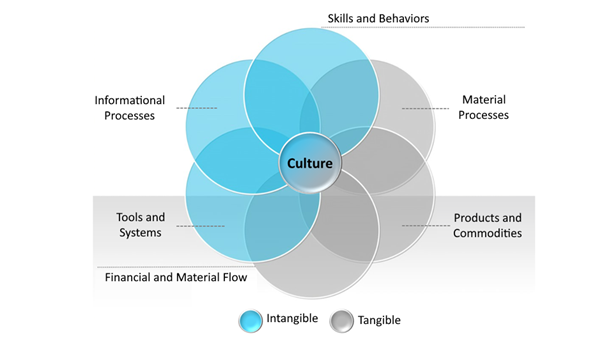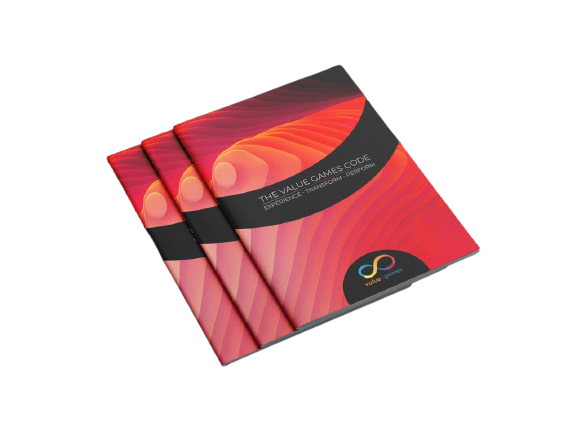Get in touch with us
Homo Simulans : The New Frontier
The infinite game of learning
1) A moment of Eternity
“It is just like in real life” shouted last week one of our U.S. clients, at the end of a memorable Value Race game. He could not have pleased us more. The particularity of Value Race is its immersion in a competition environment very close to real life, thanks to a continuous interaction between five teams in competition, and the modeling of a relevant value network for any type of industry. In four hours of simulation, the team has learned as much as in six months from the start of an S&OP (Sales and Operations Planning), without the cost of errors.
The hyperrealism and the impact of total immersion of the Value Race simulation, giving the players the impression of being outside of time is not simply a matter of adjusting a technical parameter. By playing Value Race, we do not rediscover the Wilson or Holt-Winters formulas in a game environment; by playing Value Race, we intensively experience as a team, in a dynamic and interactive way, the six dimensions of a complex value network going through the business, starting from the providers and up to its consumers, according to the following schema:

The challenge of implementing an S&OP, or any other complex new way of working, is indeed to integrate it sustainably within the culture of the company. A S&OP project out of two fails because it ignores or minimizes this complexity, and by taking a universal approach dominated by processes and check lists presented as the perfect solution for the excellency. In reality, that is not the case and the true secret of a successful S&OP is in the handcrafted approach of the six dimensions, thus the crucial importance to let the teams experience this complex problem before any real-life implementation.
It is unnecessary to be a great visionary to predict that holistic simulations like Value Race will multiply in the future; the venue of the metaverse amplifying this phenomenon in proportions hardly imaginable right now, just as, back in year 2000, we could hardly imagine the potential of the Internet.
Indeed, as underscored last December by the Financial Times, we are currently leaving the Just-in-Time era to enter the Just-in-Case one: Supply Chains: companies shift from “just in time” to “just in case”.
However, in the Just-in-Case era, simulation becomes by definition the operating standard, not only by studying technical scenarios but also by being aware of the human behaviors in extreme uncertainty and high variability situations, just like the essential fire drills.
The COVID crisis has been a genuine test for teams and, during this time, leaders have discovered the personality of their teammates, sometimes good, sometimes bad. It would certainly have been beneficial for them to be aware of that beforehand, through a simulation like Value Team, the resilience-focused variant of Value Race.

In 1938, Johan Huizinga wrote “Homo Ludens”, a sociology book that showed the central role of gaming within societies, as well as the omnipresence of playing, despite its image of “not being serious” or “not being real”. In his book, Huizinga almost thought that everything was a play, and that the frontier between game and “real life” was, after all, rather blurry. He merely conceded that play was just beside “real life”, with a universe of its own.
The Latin etymology gives us a few hints. Ludo (present participle = Ludens) means to play, but also to frolic, to have fun, or to joke. Since language forms mindset, the terrible reputation of gaming came when governments have judged that gaming was harmful to society, because Homo Ludens was luring away Homo Faber from its productive mission. Neuroscience has since showed that this reasoning was totally wrong, because we are, at the same time, both Homo Faber and Homo Ludens, just as all mammals play throughout their lifetime, as long as they are not in danger. It is biologically impossible to disconnect Homo Ludens when entering the workplace. At most, we can make people feel guilty by making them believe that playing at work is not serious. This fake news dates back to the first industrial revolution and is still present in some minds, two hundred years later.

2) Dizziness of the Simulation
It is something entirely different from simulations. Simulo (present participle = Simulans) means to make similar, to reproduce, to copy, to imitate, to simulate or to feign. The term’s duality is still found today. When an athlete simulates an error or an injury, we instantly understand he’s cheating. However, these navigation and flight simulators are now common and recognized means to learn faster those highly technical jobs. Within a company, when we talk about a simulation, we first think about flight simulator applications, rather than to faking athletes.
However, let us not be naive, though. There are already usurping simulators in the business world that usurp the behavior of a leader, like Canada Dry imitates alcohol. Eventually, those usurping simulators are identified and caught up by the reality. Much more common are the following simulators mimicking their leader, just like a chameleon. They first adopt its way of thinking, then its vocal intonations, sometimes its type of eyeglasses and, ultimate imitation, its laugh. We call them clones. Unlike usurping simulators, they have the merit of being transparent.
Is it necessary to say that, within a simulation universe, simulators are like fish in the water? To get a glimpse of it, you just have to watch Ready Player One, the visionary film from Stephen Spielberg.

In any case, whether a simulation is financial, operational or behavioral, it is much more entrenched and respectable than the game within a company, to a point where some of our clients ask us to name Value Race a simulation, rather than a game.
This is not surprising, because even since Aristotle’s Poetic, we know that: “imitating is nature to humans and is present since their childhood (humans differ from other animals because it is highly capable of imitation and it is its means of learning its first knowledge) and, second, all humans enjoy imitating.”
Under the triple influence of necessity (a world that is more and more uncertain), of a new doctrine (Just-in-Case), and of the technology (including the metaverse), simulation will grow exponentially within companies, to a point where Homo Faber and Homo Simulans are at risk of merging, for the better, but also maybe for the worse. I want to give as an example, the recent announcement of Nike to launch digital running shoes for the metaverse at the incredible price of 8,500 dollars for the pair, which reminds us of the speculative bubble on tulips, back in 1637.

Facing the metaverse dizziness and the new doctrine of the Just-in-Case, Homo Sapiens Simulans opens a new frontier that will certainly create new riches, but it will have to be very careful not to drift towards Homo Demens. This is the time to read Montaigne again with his humanist approach of doubt, that was nourished and built by passions, but also by the much bloodier follies of his time, the religious wars. His motto “What Do I Know?” is more than ever essential in today’s world, where looks supported by the constant flow of information blend more and more with the reality.



